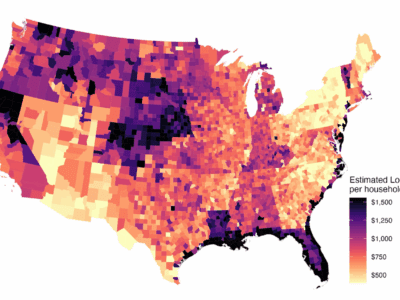‘Let the Sunshine In’: The Fight for Solar in the Tar Heel State
Despite utility opposition and conservative state legislature, the law is slowly shifting toward solar energy.
In North Carolina, renewable energy is more a distant dream than a reality. The state has a modest renewable portfolio standard (10-12% by 2018 or 2021, depending on the utility). Right now, the state is at only about 7%, with the remainder split more or less equally between coal, gas and nuclear. It has old-fashioned utility regulation, with Duke Power as the main power supplier. Duke’s goal, of course, is to protect its monopoly position in its service area and the rates made possible by its cozy relationship with regulators.
Solar power has been a major bone of contention in North Carolina. For instance, Duke Power went to war again a company that installed five kilowatts of solar on the roof of an African American church. North Carolina law allowed installation of solar, but only if the panels were purchased rather than leased by the property owner. It was one of a handful states to ban third-party ownership. Companies that wanted to go all renewable, like Google, have also faced barriers. In Google’s case, the utility was able to work out a complicated arrangement whereby a solar farm sold energy to Duke under a long-term contract which Duke then contracted to resell to Google.
The big news in North Carolina was the passage of HB 589 last summer. It’s a complicated bill, reflecting over a year of negotiation in the North Carolina House and then further tweaks in the Senate.
Overall, HB 589 seems to be a win for solar, but terms of the bill are complex, providing Duke Power some concessions while moving the ball marginally forward for solar:
- It allows homeowners to lease their solar panels, but subject to serious restrictions.
- The bill allows companies to expand their use of renewables, but only to about half of their total energy use.
- It is also designed in a way that benefits medium energy users like big box stores, but may actually make it harder for intensive energy users like Google to fill their renewables needs.
- It modifies the rules for net metering, which allows homeowners to sell some of their solar power back to the grid. The change may allow Duke Power to pay less for energy it buys back from owners of rooftop panels.
There’s another feature of HB 589 that I should mention. A last-minute state Senate amendment put an 18-month moratorium on wind facilities. The Senator who offered the bill said that he was concerned that the growth of wind facilities might make the military base-closing commission more likely to close bases in the state. I have to confess to being completely baffled by that claim.
On top of Duke’s resistance to renewable energy (especially distributed renewables), the state legislature is firmly in the hands of arch-conservatives. Since 2010, the Republican Party has had an iron grip on the legislature. It has used voting restrictions and gerrymandering to perpetuate itself (though the gerrymandering has been the subject of litigation). It has also strengthened its power at the expense of the governor (now a Democrat) and the state judiciary.
It’s a little surprising, then, that the state has been willing to do anything at all to further renewable energy. Part of the reason seems to have been pressure from businesses like Google, big box stores, and other major companies. A 1976 federal law called PURPA (Public Utility Regulatory Policies Act of 1978) seems to have been instrumental in giving the renewables industry a toehold, which has begun to come up with some political power. The 2018 election may shift the political balance,, which may give an impetus to further liberalization of rules for renewables.







Reader Comments